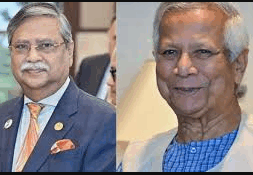
Covid-19: Ominous Omicron poses “very high” global risk, says WHO
Virendra Pandit
New Delhi: Global health watchdog World Health Organization (WHO) on Monday warned that the Omicron variant may spread internationally, posing a “very high” global risk and said the fresh Covid-19 surges could have “severe consequences” in some areas, prompting several countries to ban international travels, reimpose restrictions, as sports bodies cancelled or postponed events.
First discovered in South Africa, Omicron had been detected, until Sunday, in Britain, Germany, Italy, the Netherlands, Denmark, Belgium, Botswana, Israel, Australia and Hong Kong, the media reported. More countries are likely to report the deadly virus.
In New Delhi, All India Institute of Medical Sciences (AIIMS) Director Dr Randeep Guleria said on Sunday that Omicron showed at least 30 mutations in the spike protein, which gives it the potential to bypass immunity provided by vaccines, the variant may evade vaccine immunity.
In technical advice to its 194 member states, the WHO urged them to speed up to full vaccination of high-priority groups and to “ensure mitigation plans are in place” to maintain essential health services.
“Omicron has an unprecedented number of spike mutations, some of which cause concern for their potential impact on the trajectory of the pandemic,” it said, adding “The overall global risk related to the new variant of concern Omicron is assessed as very high.”
It said they require more research to better understand Omicron’s potential to escape protection against immunity induced by vaccines and previous infections. More data is expected in the coming weeks to find out its potential and impact.
“Covid-19 cases and infections are expected in vaccinated persons, albeit in a small and predictable proportion, “, it added.
The global health watchdog also criticised travel bans on southern African countries. The step came after South Africa complained that it was being “punished” for timely reporting of the new variant to the WHO.
India, which had only on November 26 announced to resume international commercial flights from December 15 after a hiatus of over 20 months (since March 23, 2020), may rethink its decision except for air bubbles operating since July 2020 with 31 countries, officials said on Sunday. The decision came after the government reviewed reports that Omicron was more lethal and spread quicker than other Covid variants.
After Prime Minister Narendra Modi’s emergency meeting, the Union Health Ministry updated guidelines for international arrivals in the country in view of the Omicron variant of coronavirus.
All travellers coming to India from countries identified as “at-risk”, irrespective of their Covid-19 vaccination status, will have to mandatorily undergo Covid testing at airports on arrival, besides pre-departure pandemic testing undertaken 72 hours before the departure.
All Covid-19 positive patients will be isolated and their samples taken for whole-genome sequencing. Those found negative can depart the airport but have to undergo home isolation for seven days, followed by repeat testing on the eighth day of arrival in the country.
With more countries reporting the new variant, the new guidelines also mandate that 5 percent of the travellers coming from ‘not-at-risk’ countries will also be tested randomly at the airports.
Samples of individuals testing positive, either at airports, under home isolation or during random sampling, will also be sent for whole genomic sequencing at identified INSACOG network laboratories, officials said.
The Centre has also advised states and the union territories for rigorous surveillance of international passengers, enhanced testing, monitoring the hotspots of Covid-19, ensuring augmentation of health infrastructure, including undertaking samples for whole-genome sequencing.
“The B.1.1.529 variant (Omicron) was first reported to WHO from South Africa on 24 November 2021 and the WHO’s Technical Advisory Group on SARS-CoV-2 Virus Evolution (TAG-VE) on 26th November 2021 has classified it as Variant of Concern (VoC) in view of large number mutations noted in the variant, some of which may make this mutation more transmissible and have immune escape behaviour. The emerging evidence on the issue is being monitored by the Union Ministry of Health,” the Centre said on Monday.
Meanwhile, many countries, including Israel and Japan, closed borders to all foreign travellers and Britain and Australia have tightened rules for all arrivals, as travellers and tourists started cancelling their plans in different countries. Australia’s border was closed to tourists from all countries, except New Zealand and Singapore.
The island nation of Singapore, which had only recently begun a cautious reopening to foreign travel, on Sunday deferred plans to open its borders to vaccinated travellers from the United Arab Emirates, Qatar and Saudi Arabia because those countries are transit hubs for African travel.












